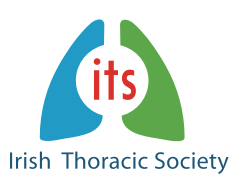| Title: | Clinical Features of SS Alpha-1 Antitrypsin Deficiency – A Risk Genotype? |
|---|---|
| Author(s): | D Fraughen, P Hawkins, T Carroll, G Kelly, C Gunaratnam, G McElvaney. |
| Institution: | rish Centre for Genetic Lung Disease, RCSI Education and Research Centre, Beaumont Hospital. |
| Poster: | Click to view poster |
| Category: | Asthma and COPD |
| Abstract: | Alpha-1 antitrypsin deficiency (AATD) is a genetic disorder that can cause lung, liver, and rarely skin disease. Guidelines advocate screening all COPD, poorly-controlled asthma, and cryptogenic liver disease patients, as well as first degree relatives of known AATD patients. The most common harmful mutation is Z (1 in 25 Irish people are carriers) which leads to a severe plasma deficiency if AAT. 1 in 10 Irish individuals carry the less harmful S mutation (Glu264Val, rs17580), one of the highest allele frequencies in Europe. However, the true clinical significance of the S mutation remains poorly understood (1). We evaluated the clinical characteristics of individuals homozygous for the S mutation enrolled on the National AATD Registry through chart reviews. 34 individuals with the SS genotype were included in our analysis. Basic demographics, smoking status with pack-year, asthma diagnosis, lung findings on CT and presence of liver disease were analysed. Our study revealed that the prevalence of lung and liver disease in SS individuals is quite high, though a referral bias exists. Further analysis will hopefully answer how at-risk this population is. The Alpha-1 Registry is an essential resource to collate data and answer this question. Rererence: 1. Carroll TP, O'Connor CA, Floyd O, McPartlin J, Kelleher DP, O'Brien G, et al. The prevalence of alpha-1 antitrypsin deficiency in Ireland. Respir Res. 2011;12(1):91. |
